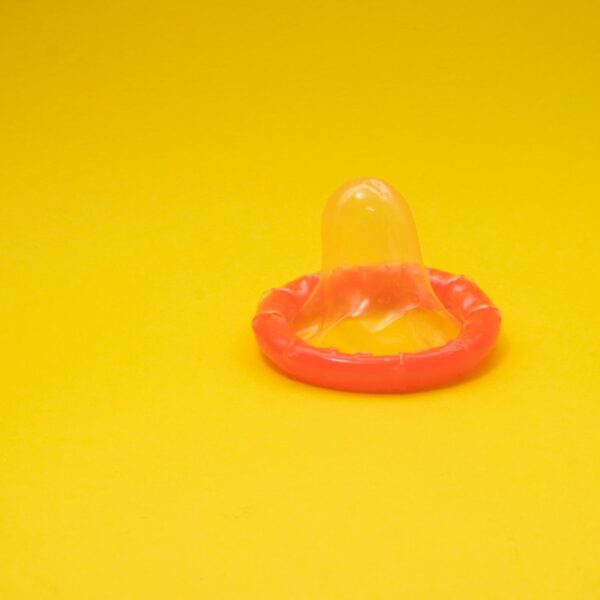Premature ejaculation is a common problem that can have serious consequences. It usually happens during sex or after masturbation and is caused by muscles at the base of the penis contracting.
Ejaculating regularly has zero impact on a man’s fertility or overall sex drive and is emotionally gratifying because arousal releases hormones like oxytocin and dopamine – This information was given by the service’s editor Erotic Ecstasy.
Semen Retention
If you’re into social media, you might have seen people posting about semen retention. This is a trend that involves deliberately holding out on ejaculating for purported health benefits. While it might sound like a new sexual fad, semen retention has actually been around for years. The r/Semenretention subreddit, for example, has been around since 2014 and claims to have over 100,000 members. The group is not related to the abstinence encouragement movement NoFap, which is currently taking over TikTok, although some people do use the two terms interchangeably.
Some people believe that avoiding ejaculation helps them achieve spiritual, emotional, and physical well-being by letting them harness “male energy.” In their view, men who control when they orgasm can use the power of their penis to help them reach their full potential. These people may also find that they’re better able to focus on their careers and other personal goals when they don’t have to worry about sex or masturbation.
In reality, however, there’s no scientific evidence that sperm retention offers any health benefits. Sperm that’s not expelled during sex or masturbation is simply absorbed by the body. Some people, such as those with “blue balls” or other signs of high blood pressure in their testicles, might experience discomfort or pain without ejaculating, but there’s no medical reason to avoid it.
Ejaculation Delay
Premature ejaculation, or PE, is when you lose control over your ejaculatory reflex and start ejaculating before reaching sexual orgasm. It’s a common problem that can cause stress and relationship problems and is particularly worrying for couples who want to have kids. If you suffer from PE, talk to a healthcare provider because there are treatments that may help.
Symptoms of delayed ejaculation can be mild to severe. Some men experience PE with all partners, while others only have a problem with specific people or situations. It may also be a permanent or lifelong problem, or it can come and go. It can lead to relationship problems and lower self-esteem because of a lack of sexual pleasure.
Some doctors recommend behavioral therapy to treat PE. It involves stimulating the penis until you’re close to climax and then squeezing it so that your erection partly goes away. This method can help you learn to delay ejaculation on your own and improve your sexual performance. Other psychological treatments may help, such as psychotherapy and counseling with a sex therapist. There are also a few medications that can help, including buspirone (BuSpar), an anxiety medication; amantadine (Symmetrel(r)), a treatment for Parkinson’s disease; and cabergoline (Keppra(r)), a drug that promotes dopamine levels. These drugs aren’t specifically approved for treating PE, but they can be used off-label.
Infections
A man’s body produces millions of sperm cells each day. Once mature, they are pushed out of the testicles in the semen, which is then carried to the anus through the epididymis. It takes about a day for sperm to reach the woman’s vagina, where they can fertilize her egg. Sperm that isn’t fertilized dies or gets reabsorbed by the body.
People can use condoms to block sperm from leaving the penis. However, some medical conditions or health concerns can cause a person to need to hold their sperm for longer than usual. In those cases, a person should talk to a medical professional for guidance. A medical professional can look into a person’s medical and sexual history, perform a physical examination, and run any necessary tests to find underlying issues.
Bacterial contamination of semen can affect sperm cell function and morphology. Studies have shown that gram-positive uropathogenic bacteria such as Enterococcus faecalis are present in 50% of semen samples. Other bacteria, such as micrococci and alpha-haemolytic streptococci, are also frequently found in semen.
If a person holds their sperm for too long, they may get an infection in the throat or anus, or have blood in their urine (hematuria). They can also develop symptoms of a urinary tract infection, including pain when they pee (dysuria), and white, yellow or green discharge from their penis (cervicitis). Treatment of these infections can involve antibiotics or surgery to remove the prostate gland.
Infertility
Men with poor sperm quality or blockages in the reproductive tubes often experience difficulty getting pregnant. But the good news is that around 30% of fertility problems originate in the man and can be solved by procedures such as intracytoplasmic sperm injection (ICSI).
The whitish fluid containing sperm called semen is produced in a man’s testicles. Once a man has reached sexual maturity his sperm spends about two or 10 days passing through a series of delicate tubes known as the epididymis and vas deferens, before muscular contractions push it into the ejaculatory duct and out of the penis. A variety of conditions can affect the health and quality of a man’s semen, including low sperm count, varicocele, congenital defects, untreated STDs and cancer treatment.
A healthy sperm is light, motile and strong enough to swim its way through a woman’s reproductive tract to the fallopian tube where conception takes place. It can take up to 12 hours for a sperm to make this journey, during which time it may die or get lost. Usually only a few sperm manage to penetrate an egg, and it takes just one sperm to fertilise it.
A man’s sperm count can be affected by a number of factors, from his age to his diet and lifestyle. For example, a man’s sperm count can be improved by eating more yellow and orange fruit, leafy green vegetables and cinnamon, while foods that can harm sperm include chocolate, red meat, alcohol and cigarettes.




Leave a Comment